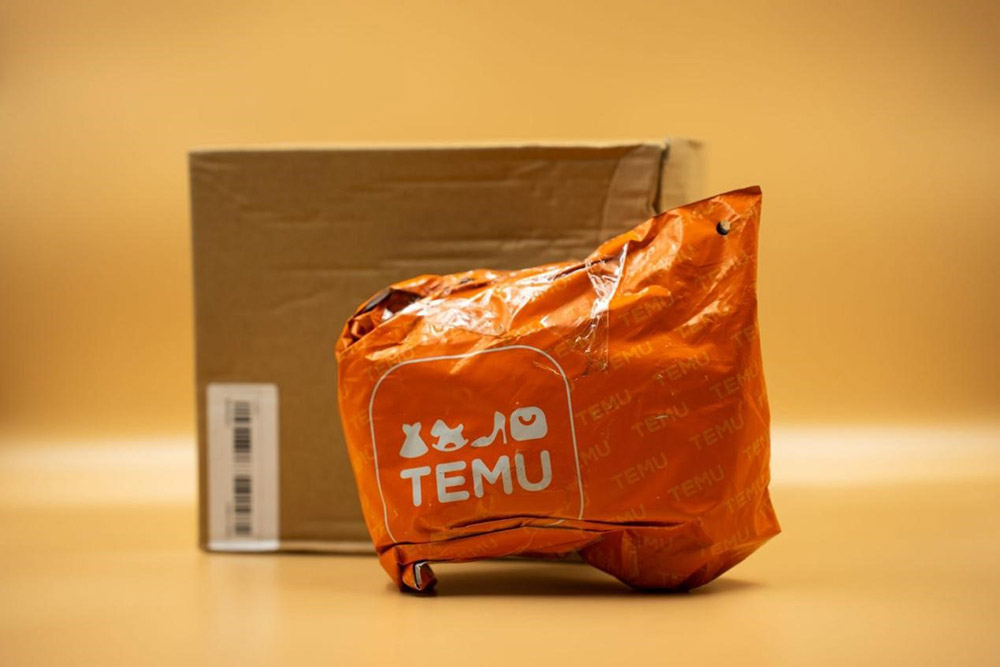
中国创立的电商平台Temu和希音表示,计划自本周起,上调面向美国消费者的商品售价。这是唐纳德·特朗普(Donald Trump)意图通过对中国输美商品加征高额关税来矫正中美这两大全球经济体间贸易失衡状况所引发的连锁反应。
中国电子商务公司拼多多(PDD Holdings)旗下的跨境电商平台Temu和总部位于新加坡的快时尚跨境电商希音,在内容近乎一致的独立声明中均指出,“受近期全球贸易规则与关税变动影响”,其运营成本有所上升。
两家公司均宣称,自4月25日起将实施“价格调整”,但均未披露价格涨幅的具体细节。目前尚不清楚这两家竞争对手为何在其购物网站上发布了近乎相同的声明。
自进军美国市场以来,希音和Temu凭借超低价格商品以及铺天盖地的数字广告或网红营销攻势,给西方零售商带来了巨大的竞争压力。
特朗普政府对中国生产的大多数产品加征145%的关税,并决定终止允许价值低于800美元的商品免缴关税进入美国的海关豁免政策,此举对上述两个平台的商业模式造成了冲击。
电商公司一直是这项广泛应用的豁免政策的最大受益者。特朗普本月签署了一项行政命令,宣布自5月2日起取消针对来自中国大陆和中国香港商品的“小额豁免条款”,届时这些商品将被加征145%的进口税。
依据这项即将废止的条款,每天有多达400万个低价值包裹运抵美国,其中大部分来自中国。
美国政界人士、执法机构和商业团体曾游说,力主取消这一存续已久的豁免政策,称其为贸易漏洞,使价格低廉的中国商品获得了不公平的竞争优势。
希音聚焦年轻女性消费群体,主要通过与社交媒体网红合作,销售价格低廉的服装、化妆品和配饰。而Temu则通过在线广告进行商品推广,销售的商品种类更为多元,包括家居用品、趣味礼品和小型电子产品。
根据数据分析提供商Sensor Tower的数据,去年这两家公司位列社交媒体平台广告支出最高的企业之列,然而在最近几周,它们均缩减了广告开支。这对于像脸书(Facebook)、Instagram、Snap、X平台和TikTok等依赖广告收入的平台而言,或许并非利好消息。
去年11月,美国电商巨头亚马逊(Amazon)推出了一个低价线上商城,主要售卖价格低于20美元的电子产品、服装和其他商品。上周三,该商城展示的大量电子产品、服装和其他商品,与希音和Temu平台上常见的商品品类极为相似。
在针对即将涨价事宜向客户发布的通知里,这两家公司均鼓励客户在接下来的数日内持续进行购物。
Temu的声明中写道:“我们已备足了库存,全力保障在此期间您的订单能够顺利送达。我们正不遗余力地维持低价,将涨价对您造成的影响降至最低。”(财富中文网)
译者:中慧言-王芳
中国创立的电商平台Temu和希音表示,计划自本周起,上调面向美国消费者的商品售价。这是唐纳德·特朗普(Donald Trump)意图通过对中国输美商品加征高额关税来矫正中美这两大全球经济体间贸易失衡状况所引发的连锁反应。
中国电子商务公司拼多多(PDD Holdings)旗下的跨境电商平台Temu和总部位于新加坡的快时尚跨境电商希音,在内容近乎一致的独立声明中均指出,“受近期全球贸易规则与关税变动影响”,其运营成本有所上升。
两家公司均宣称,自4月25日起将实施“价格调整”,但均未披露价格涨幅的具体细节。目前尚不清楚这两家竞争对手为何在其购物网站上发布了近乎相同的声明。
自进军美国市场以来,希音和Temu凭借超低价格商品以及铺天盖地的数字广告或网红营销攻势,给西方零售商带来了巨大的竞争压力。
特朗普政府对中国生产的大多数产品加征145%的关税,并决定终止允许价值低于800美元的商品免缴关税进入美国的海关豁免政策,此举对上述两个平台的商业模式造成了冲击。
电商公司一直是这项广泛应用的豁免政策的最大受益者。特朗普本月签署了一项行政命令,宣布自5月2日起取消针对来自中国大陆和中国香港商品的“小额豁免条款”,届时这些商品将被加征145%的进口税。
依据这项即将废止的条款,每天有多达400万个低价值包裹运抵美国,其中大部分来自中国。
美国政界人士、执法机构和商业团体曾游说,力主取消这一存续已久的豁免政策,称其为贸易漏洞,使价格低廉的中国商品获得了不公平的竞争优势。
希音聚焦年轻女性消费群体,主要通过与社交媒体网红合作,销售价格低廉的服装、化妆品和配饰。而Temu则通过在线广告进行商品推广,销售的商品种类更为多元,包括家居用品、趣味礼品和小型电子产品。
根据数据分析提供商Sensor Tower的数据,去年这两家公司位列社交媒体平台广告支出最高的企业之列,然而在最近几周,它们均缩减了广告开支。这对于像脸书(Facebook)、Instagram、Snap、X平台和TikTok等依赖广告收入的平台而言,或许并非利好消息。
去年11月,美国电商巨头亚马逊(Amazon)推出了一个低价线上商城,主要售卖价格低于20美元的电子产品、服装和其他商品。上周三,该商城展示的大量电子产品、服装和其他商品,与希音和Temu平台上常见的商品品类极为相似。
在针对即将涨价事宜向客户发布的通知里,这两家公司均鼓励客户在接下来的数日内持续进行购物。
Temu的声明中写道:“我们已备足了库存,全力保障在此期间您的订单能够顺利送达。我们正不遗余力地维持低价,将涨价对您造成的影响降至最低。”(财富中文网)
译者:中慧言-王芳
China-founded e-commerce sites Temu and Shein say they plan to raise prices for U.S. customers starting next week, a ripple effect from President Donald Trump’s attempts to correct the trade imbalance between the world’s two largest economies by imposing a sky-high tariff on goods shipped from China.
Temu, which is owned by the Chinese e-commerce company PDD Holdings, and Shein, which is now based in Singapore, said in separate but nearly identical notices that their operating expenses have gone up “due to recent changes in global trade rules and tariffs.”
Both companies said they would be making “price adjustments” starting April 25, although neither provided details about the size of the increases. It was unclear why the two rivals posted almostidentical statements on their shopping sites.
Since launching in the United States, Shein and Temu have given Western retailers a run for their money by offering products at ultra-low prices, coupled with avalanches of digital or influencer advertising.
The 145% tariff Trump slapped on most products made in China, coupled with his decision to end a customs exemption that allows goods worth less than $800 to come into the U.S. duty-free, has dented the business models of the two platforms.
E-commerce companies have been the biggest users of the widely used exemption. Trump signed an executive order this month to eliminate the “de minimis provision” for goods from China and Hong Kong starting May 2, when they will be subject to the 145% import tax.
As many as 4 million low-value parcels — most of them originating in China — arrive in the U.S. every day under the soon-to-be canceled provision.
U.S. politicians, law enforcement agencies and business groups lobbied to remove the long-standing exemption, describing it as a trade loophole that gave inexpensive Chinese goods an advantage and served as a portal for illicit drugs and counterfeits to enter the country.
Shein sells inexpensive clothes, cosmetics and accessories, primarily targeting young women through partnerships with social media influencers. Temu, which promoted its goods through online ads, sells a wider array of products, including household items, humorous gifts and small electronics.
Last year the companies were among the largest advertising spenders on social media platforms, but they’ve both slashed that spending in recent weeks, according to data analytics provider Sensor Tower. That could be bad news for the platforms such as Facebook, Instagram, Snap, X and TikTok that rely on advertising.
In November, American e-commerce giant Amazon launched a low-cost online storefront featuring electronics, apparel and other products priced at under $20. Many of the electronics, apparel and other products on the storefront Wednesday resembled the types of items typically found on Shein and Temu.
In their customer notices about the pending price increases, the companies encouraged customers to keep shopping in the days ahead.
“We’ve stocked up and stand ready to make sure your orders arrive smoothly during this time,” Temu’s statement said. “Were doing everything we can to keep prices low and minimize the impact on you.”






